|
| NEWSLETTER IMPALA - Edition 06 - October 2022
|

|

|
Boletín
|
|
Dear Colleagues:
The main objective of the sixth edition of this newsletter is to share with you the progress this Project has had in its final phase for the Latin American universities.
It is important to remind you this newsletter has five sections, which will allow you to see firsthand what the project is about, how it has been developed, and other important highlights. Likewise, you can find additional information of interest related to this in the website: impalaproject.eu
We hope you get in contact with us and follow closely this joint growth from the development of the IMPALA project.
Marcela del Campo M.
Coordinator of the IMPALA project, Catholic University of Colombia
|
|
LATIN AMERICAN HIGHER EDUCATION INSTRITUTONS FINALIZE THE EVALUATION OF THEIR 3RD MISSION.On 16 March 2022, the partners of the IMPALA project met to finalize the evaluation of the 3rd mission of the Latin American universities. This event completed a process that started 18 months ago and concluded with the publication of 11 institutional reports, one for each Latin American institution of the consortium.
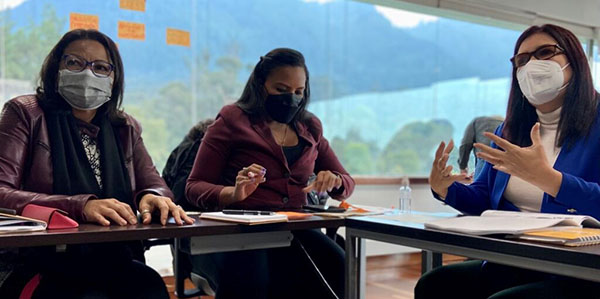

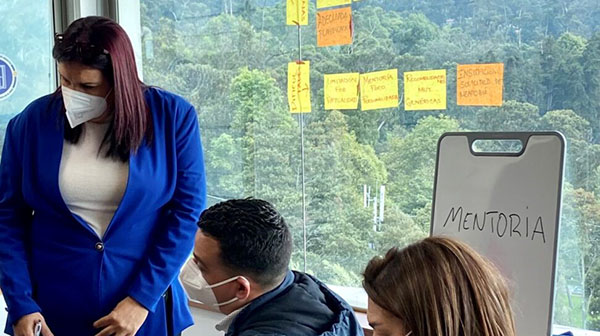
Based on the 3rd mission’s typologies from the Impact Assessment Framework, each coordinator consulted with the university managers in charge of these activities and completed a summary note with information on their development status, financing and results. This long, 10 months process, allowed the coordinators to identify numerous activities managed locally by professors or university managers but not yet compiled by the extension services. It also enabled to classify the activities by their effects on the beneficiaries of the institution’s socio-economic environment, and their benefits for the institution. In accordance with the university’s situation analysis, coordinators identified possible development axes and good practices for the strengthening in the 3rd mission in their institutions.
As coordinator of the project IMPALA and responsible for these activities, EFMD accompanied the partners throughout the process. 42 mentoring sessions took place in which theoretical concepts of management education were presented, as well as good practices from quality assurance and accreditation. European partners supported EFMD with this task sharing their expertise in managing their 3rd mission, in particular Universidade do Porto, Universitat Ramon Llull– ESADE and Università Cattolica del Sacro Cuore.
Each coordinator will present the results of the reports to their top management (academic council or university’s extension department). This will support the redefinition of the 3rd mission strategies in the institution. EFMD will coordinate the publication of the book “Best practices in impact assessment in HEIs” with the aim of facilitating the replication of this initiative in other institutions in the region. The book will be presented during the project’s final conference in Havana in October-November 2022.
|
TOP MANAGERS´ MEETINGS AT UNIVERSIDAD DE PANAMÁ.
During the first week of April 2022, the IMPALA Team of the Universidad de Panamá, whose members are Dr. Yajaira Castillo, Deputy Secretary-General of the Universidad de Panamá; Dr. Maribel Gómez of the Academic Vice Presidency and Mgter. Marcela Ortega from the Office of International Cooperation and Technical Assistance; coordinated a series of meetings with the authorities of this institution of higher studies to let them know the latest progresses of the Erasmus Plus IMPALA Project.
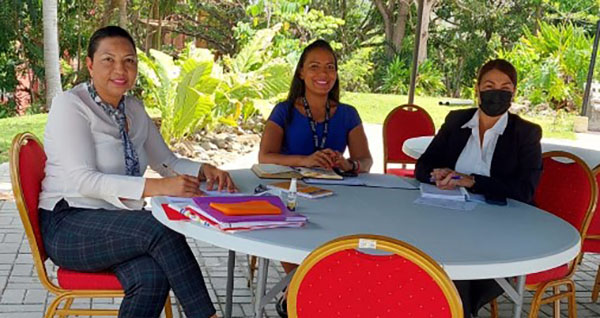
In addition, one of the first meetings was with Mgter. Mayanín Rodríguez, Vice Student Affairs’s President of the Universidad de Panamá, who received the team in her office at this day of dissemination of the activities within the framework of the Erasmus Plus IMPALA Project.
Next, a meeting was held with Dr. José Emilio Moreno, Academic Vice President of the Universidad de Panamá, who knows very closely about the activities carried out in the IMPALA Project and will follow up the project’s sustainability actions through this Vice Presidency’s Office in our institution.
Similarly, a meeting was held with the President of the Professors Association of the Universidad de Panamá, Prof. José Álvaro, Coordinator of the CEFERE Project from the Regional University Center of San Miguelito.
|
|
|
|
Coordination meeting
- Date: November 7th, 2022
- Place: La Habana – Hotel Nacional
Final Conference
- Daye: November 7 and 8, 2022
- Lugar: La Habana – Hotel Nacional
|
|
|
IMPALA IN PRACTICE
|
PRESENTATION OF IMPALA TO UNAH´S BOARD OF DIRECTORS
|
|
IMPALA project‘s Impact Assessment Framework (IAF), value chain, Institutional Impact Assessment Report and methodological tools were presented to the Board of Directors of the Agrarian University of Havana “Fructuoso Rodríguez Pérez” (UNAH).
Two things were highlighted during the presentation: the IAF and value chain’s usefulness to measure the relevance of the University’s actions with its environment; and the importance of replicating these learnings in the university’s community. Good practices and lessons learned were exhibited as well.
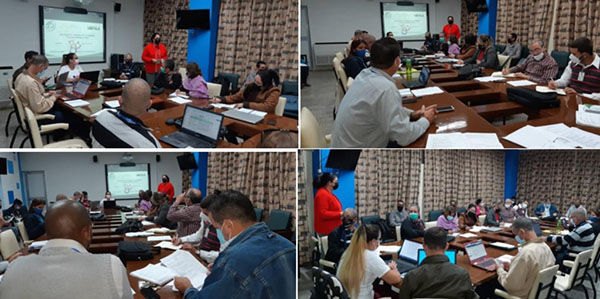
The university has selected two projects to validate in the institution IMPALA’s IAF: Inclusion of students with disabilities at the UNAH; and Doctoral Training College at the Scientific Teaching Complex of the Mayabeque Province. The first one belonging to the Assistance Services typology and the second one to the Continuing Education typology.
Finally, replication workshops have been organized in all the faculties, areas and local university centres of the province as dissemination activities.
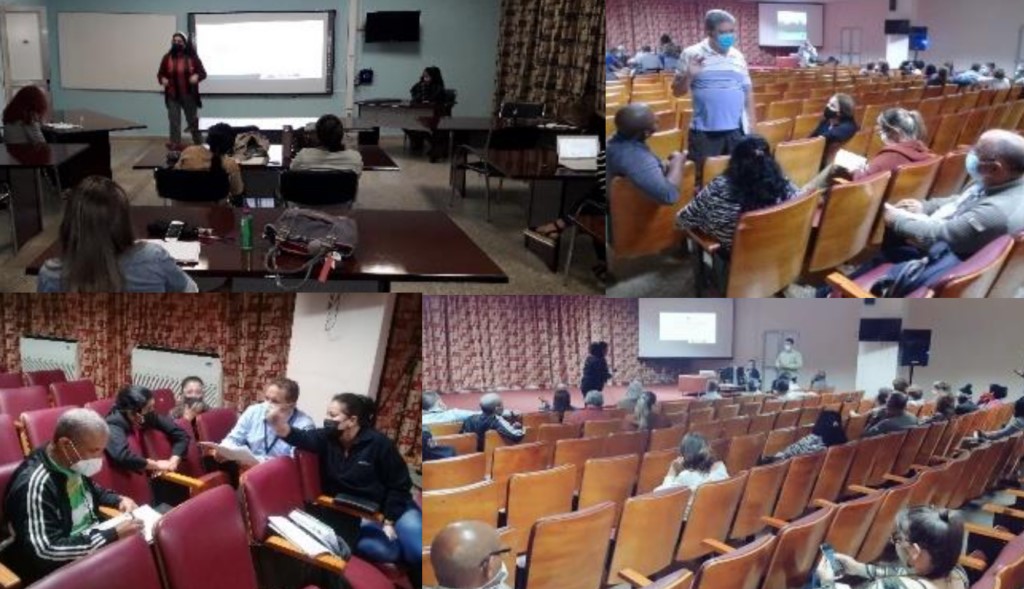
|
PRESENTATION OF REFLECTIONS FROM THE PROJECT IMPALA AT THE UNIVERSITY OF LA SABANA.
|
|
On Friday 8 April , within the framework of the closure of the Sustainability and BIC Companies, the presentation of the main learnings and reflections from the project IMPALA were presented at the University of La Sabana.
The session was led by Juan Carlos Camelo, General Director of Social Projection and Co-creation, who has actively participated in the project IMPALA. The University’s Rector, Dr. Rolando Roncancio Rachid, and several deans, directors of administrative units, professors and managers of third mission’s activities attended too.
During the event, Juan Carlos Camelo and Carolina Velásquez, coordinator of the project IMPALA at the university, shared the main progress that has been made during these last three years. Besides, reflections on the importance of university’s third mission’s projects’ impact assessment were exchanged.
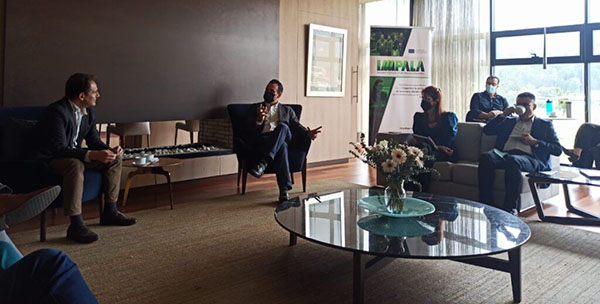

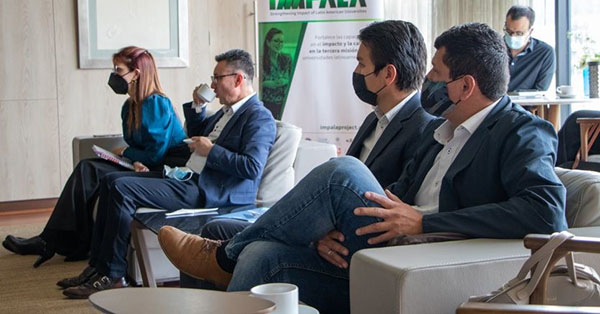

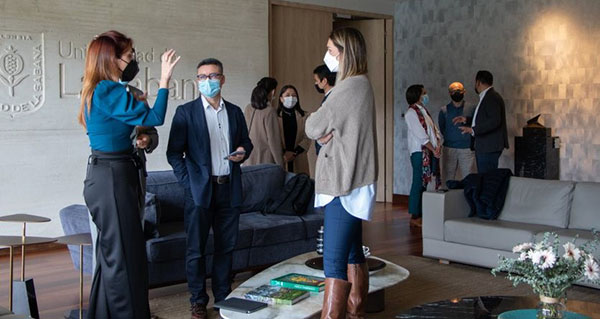
The importance of differentiating between product – effect – and impact- was presented as one of the main learnings when it comes to creating evaluation and monitoring indicators and tools. Another highlight was that the use of impact assessment methodologies promotes working by projects in interdisciplinary teams. In the transformation process towards a third generation University (U3G), it is important to bear in mind that the impact assessment framework must start in the third mission, while it is organically integrated in the other two University’s missions: teaching and research. This is particularly relevant taking into account the new national accreditation model.
Finally, the attendees declared that this type of international cooperation projects are of great importance for the strengthening of institutional capacities. They also highlighted the great opportunities to learn and exchange good practices within the consortium that have been created.
|
PRESENTATION OF THE RESULTS OF THE PILOT OF COMMUNITY ACTIONS PROJECTS AT THE CATHOLIC UNIVERSITY OF COLOMBIA.
|
|
In previous days, at the Catholic University of Colombia, the Extension Committee was held, which is composed of the coordinators of the different programs and departments of the university and all the staff of the institution linked to the Extension.
In this space, the main results of the two community action projects were presented which were worked on the ERASMUS – IMPALA impact assessment, in the territorial program YOMASA :
Project 1: Fortalecimiento ciudadano al servicio de transformaciones personales, familiares y comunitarias, hacia la convivencia de los microterritorios participantes de la Unidad de Planeamiento Zonal 57 Gran Yomasa (entre los años 2016 y 2020). Citizen strengthening at the service of personal, family and community transformations towards the coexistence of the participating micro-territories of the Unit of Zonal Planning 57 Gran Yomasa between 2016 and 2020.
Project 2: Construcción de cultura y conciencia medioambiental (con niños y jóvenes en algunos sectores de la Unidad de Planeamiento Zonal 57 Gran Yomasa entre los años 2016 y 2020.) Construction of culture and environmental awareness with children and young people in some sectors of the Zonal Planning Unit 57 Gran Yomasa between 2016 and 2020.
With this socialization, it’s evident the learning in terms of measuring the impact of the community actions that the university carries out in the institutional programs of social responsibility, which is of great benefit for the measurement of future projects.
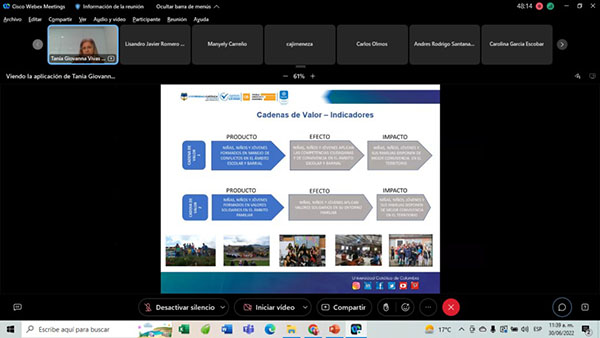
|
|
ONGOING
|
Impala consolidates its results in international publications
|
|
At present, the IMPALA project is working on the edition of the two books that are the product of the work of these three years. Firstly, the book Buenas Prácticas de Tercera Misión (Third Mission Good Practices), and, secondly, the book Evaluación de Impacto de Proyectos Institucionales de Tercera Misión (Third Mission Institutional Projects Impact Assessment). The publishing house of the Corporation for Biological Research (CIB for its acronym in Spanish) with the accompanying of the University of Antioquia is carrying out the editorial process, with the support of EFMD and advisors Fiona Hunter and Rafael Monterde.
The two books present concrete examples of the development of IMPALA in each of the Latin American higher education institutions of the consortium. The book Evaluación de Impacto de Proyectos Institucionales de Tercera Misión presents the application of the Impact Assessment Framework methodology in the Third mission projects developed in Colombian, Cuban and Panamanian universities. It is intended for Third mission project managers, academic and administrative managers as well as university staff interested in how to measure the contribution of their institution in their local environment. The Buenas Prácticas de Tercera Misión book is aimed at top management, that is, university directors (extension management, deans or rectory), interested in applying a process of analysis and strategic evaluation of the 3rd mission, and how to organize university resources to respond efficiently and pertinently to the demands of their local socio-economic environment.
We hope that these documents will be a support for all higher education institutions in the Latin American and Caribbean region to guide their institutional planning processes towards achieving impacts on education for the benefit of the communities.
These books will be officially presented at a project closing event in Havana in November. They will also be available on the project IMPALA website in digital format.
We wish that this will be the starting point for new projects that effectively apply this hard collective work of our institutions in Latin America and the Caribbean and the organizations and universities in Europe that have supported it.
|
IMPALA PUBLISHES ITS MEASUREMENT IMPACT ASSESSMENT FRAMEWORK
|
|
In 2019, at the start of IMPALA, the project consortium designed the Impact Assessment Framework. This methodological guide is made up of reflections on the theory of change, the importance of the Third mission in Latin America and its six categories ("typologies" thus presented in the document such as continuing education, community actions or the management of innovation, among others), and finally the inclusion of the Sustainable Development Goals (SDG) in Higher Education. Above all, it includes indicators that allow measuring the impact of the university's Third mission activities in one of its four dimensions: economic, social, environmental and epistemological.
During the last three years, Latin American universities used the IAF to measure the impact of two selected Third mission projects, currently under development. Despite the restrictions caused by sanitary conditions and the difficulty of accessing information, it was possible to present concrete results to the directors of the consortium members on how their projects contribute to local socio-economic development. You will find further information on this point in the book of good practices presented a little before this bulletin.
The lessons learned from this exercise allowed the validation of the IAF methodology. In recent weeks, those responsible for the University of Antioquia (Colombia), the Universitat Politécnica de Valencia (Spain) and the Catholic University of the Sacred Heart (Italy) reviewed the indicators presented at the IAF to assess their relevance, complement them in if necessary, and specify them for use by other Latin American institutions interested in the subject. This methodological guide (Impact Assessment Framework) was published in a freely accessed publication on the IMPALA project website, in the Resources section.
During the final conference of the IMPALA project to be developed in Havana (Cuba) on November 7-8, 2022, the publication of this central document of the project will be officially announced.
|
|
TO HIGHLIGHT
|
PRESENTATION OF THE RESULT OF THE PILOT OF THE IMPALA PROJECT IN THE II CONGRESS OF UNIVERSITY SOCIAL EXTENSION.
|
|
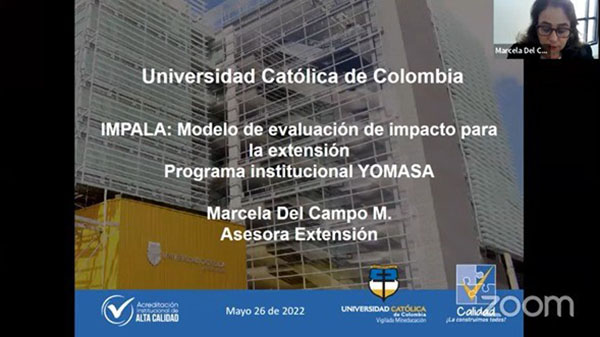
On May 26, the Catholic University of Colombia was invited to present the results of the pilot of its two community action projects carried out as part of the fourth work of the IMPALA project, at the II Congress of University Social Extension El territorio como fundamento de la extensión (the territory as foundation of the extension). Marcela Del Campo, consultant to the Management of Extension and Coordinator of the project at the university, was in charge of showing the related projects. The first, the strengthening of citizen skills, and the second, the construction of culture and environmental awareness. This presentation was very well received among the more than one hundred participants in the event.
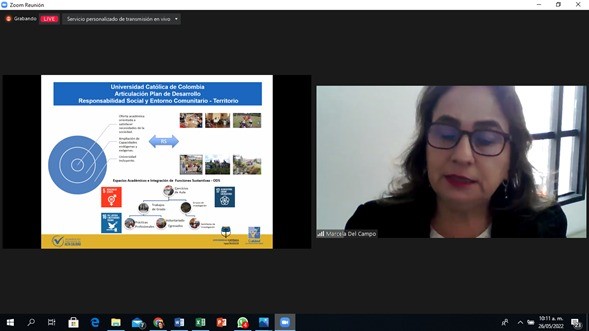
The impact measurement model of the third IMPALA mission continues to generate great expectations in Colombian universities. Therefore, the preliminary IAF (Impact Assessment Framework) has been shared with more than 50 higher education institutions interested in learning more about said model. The publications of the case studies and the methodology of the model are expected to be distributed at the national level and that the IMPALA model be adopted by many of them.
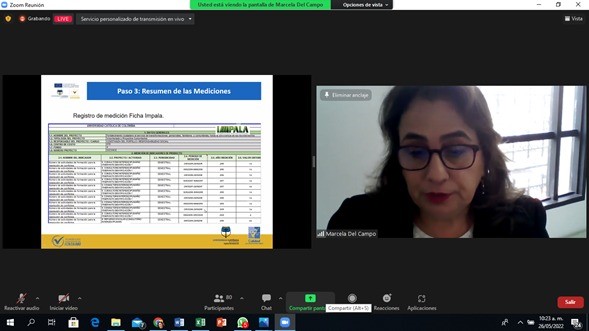
|
THIS IS HOW THE SOCIALIZATION OF THE PROJECT STRENGTHENING THE IMPACT OF LATIN AMERICAN UNIVERSITIES WAS CARRIED OUT
|
|
On 30 August, the Colombian Association of Administration Faculties (ASCOLFA for its acronym in Spanish) held a meeting with the members of the Caribbean Coast chapter at the Rafael Núñez University Corporation at its headquarters in the city of Cartagena de Indias, in order to share and socialize the experience and results of its participation in the project “Fortalecimiento del impacto de las universidades latinoamericanas” (Strengthening the impact of Latin American universities) IMPALA (for its acronym in English) of the Erasmus + program of the European Union, with the direction of the EFMD. About 50 people participated in the meeting, including deans and directors of Administration schools of the Caribbean Coast Chapter of ASCOLFA, as well as professors and graduates of this prestigious institution.
n this meeting, the ASCOLFA research team, Dr. Gisele Eugenia BECERRA, executive director of the association, accompanied by researchers Claudia Patricia Ballesteros and William Umar Rincón, were in charge of presenting the main results of the two projects carried out by ASCOLFA within the framework of IMPALA, the first project “Impacto de la Educación Continua en el desarrollo de Carrera del Egresado y su empleabilidad en Colombia” (Impact of continuing education in the development of the graduate’s career and their employability in Colombia) and the second corresponding to the development of the “Caracterización de la Tercera Misión en las instituciones de educación superior en Colombia” (Characterization of the Third Mission in higher education institutions in Colombia).
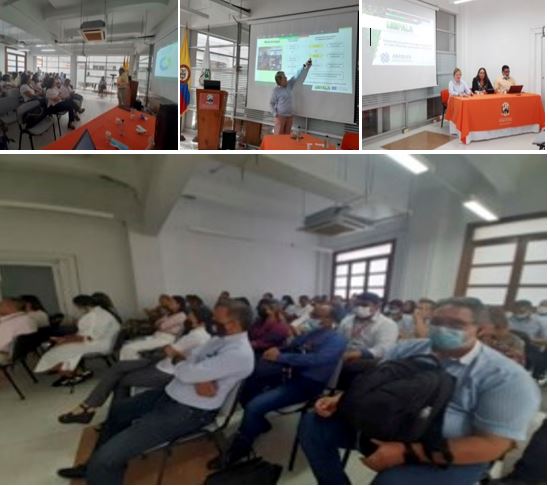
|
|
|

|

|
|
Catholic University of Colombia © all rights reserved 2018
To cancel your subscription, click here
This email was sent through MasterBase® ST for Catholic University of Colombia
Av. Caracas # 46 - 72 / Phone. 3 27 73 00
|
|
|
|